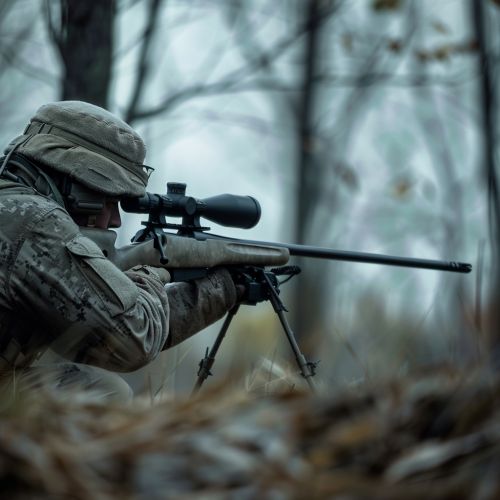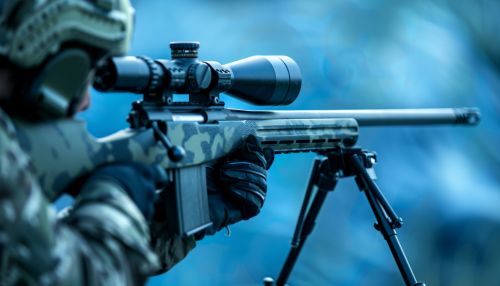Sniper
Definition and Role
A sniper is a highly trained military or law enforcement shooter who operates to maintain effective visual contact with the enemy and engage targets from concealed positions or distances exceeding the detection capabilities of enemy personnel. These specialized soldiers have a unique, complex role requiring them to incorporate stealth, camouflage, and high-precision shooting skills to take out targets at long distances.


History
The use of snipers in warfare dates back to the American Revolutionary War. However, the role of the sniper was not truly recognized until World War I, when the static nature of trench warfare made it ideal for sniper use. The development of specialized sniper rifles and tactics continued through World War II, the Korean War, and the Vietnam War with each conflict seeing an increasing reliance on snipers in both offensive and defensive roles.
Training
Sniper training varies from country to country but it generally involves rigorous physical and mental preparation. In addition to marksmanship, prospective snipers must master camouflage, field craft, infiltration, special reconnaissance and observation, surveillance and target acquisition.
Equipment
Snipers use a variety of equipment tailored to their specific mission and role. This typically includes a specially designed sniper rifle, a high-quality scope, and often a sidearm for personal protection. They also utilize a range of other equipment such as ghillie suits for camouflage, binoculars for long-range observation, and range finders to calculate the distance to the target.
Tactics
Snipers employ a range of tactics to achieve their objectives. These include stealth movement, camouflage, selection of firing positions, and effective communication with their spotter or command element. They also need to consider factors such as wind direction and speed, gravity, temperature, and even the Earth’s rotation when taking a shot.
Impact on Warfare
The presence of a sniper can significantly influence the battlefield. They can demoralize enemy troops, reduce their operational freedom, and force them to take time-consuming and resource-intensive countermeasures. Snipers can also take out high-value targets, such as officers or other key personnel, and can provide valuable intelligence to their command element.
